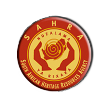THIS IS THE ARCHIVE FOR SAHRIS 1.0
THIS SITE IS NOW AN ARCHIVE AND IS NOT SUITABLE FOR MAKING APPLICATIONS
Please be aware that no content and application creation or changes to information on this version of SAHRIS will be retained.
To make applications or utilise SAHRIS for the creation of information, please use the new site:
https://sahris.org.za
Changes to SAHRIS!
The South African Heritage Resources Information System (SAHRIS) has undergone a generational upgrade and restructure. These changes to the site include, but are not limited to:
- A new & modernised look and layout
- Improved site usage flows with respect to applications and content creation
- Improved site performance and stability
Launch for the new version of SAHRIS occurred on Monday the 30th of October 2023.
The new site can be found here:
SAHRIS | SAHRIS
DECLARATION OF THE WALTER SISULU SQUARE OF DEDICATION, KLIPTOWN, SOWETO, GAUTENG AS A NATIONAL HERITAGE SITE
- 56 reads
SiteReference:
Organisation:
DeclarationType:
GazetteNo:
Gazette Date:
NoticeNo:
Notice Date:
Gazette Notice Status:
- Current
GazetteFile:
| Attachment | Size |
|---|---|
| 626.6 KB |
DiagramNo:
ShortDescription:
By virtue of the powers vested in the South African Heritage Resources Agency, in terms of section 27 (5) of the National Heritage Resources Act (No. 25 of 1999) SAHRA hereby declares the Walter Sisulu Square of Dedication (previously known as Freedom Square) as a National Heritage Site.
FullDescription:
As the site of the 1955 Congress of the People, the Walter Sisulu Square represents the most
representative gathering in the history of South Africa and the democratic approach taken in
documenting the vision of ordinary South Africans. The process of drafting the Freedom
Charter was the first time in South African history where all South Africans were given an
opportunity to voice their dreams and hopes for a future democratic South Africa, irrespective
of race, colour, education, language, sex, personal beliefs and organisational affiliation.
This process culminated on 25th and 26th June 1955, at the Congress of the People on a
dusty field that is now the Walter Sisulu Square of Dedication, to adopt the Freedom Charter.
The Freedom Charter further, gave the liberation movement a uniform and coherent vision for
a future South Africa and became the basis of the movement. The Constitution of the new
post-apartheid democratic South Africa is based on the demands and rights reflected in the
Freedom Charter and encapsulates its vision as a goal for a fully integrated and inclusive
South African nation.
